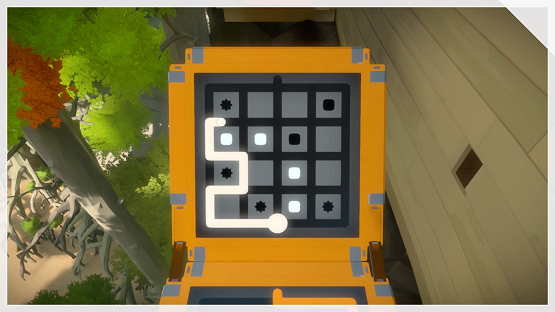The Witness developer Thekla Inc. recently held an AMA on Reddit, answering a magnitude of fan questions about the title. One particular topic that came up quite a bit was virtual reality compatibility for the game which, according to game programmer Andrew Smith, would be quite “problematic.” He cites several reasons for this including the game’s design and the room VR may provide for players to be able to “cheat” the puzzles. He wrote:
VR is actually quite problematic for The Witness (outside of the broader issues current seated or room-scale VR is just bad for navigating any huge open-world environment in first person) in that some of the alignment-puzzles (I won’t go into spoilers) can be “cheated” by crouching down, or tilting your head etc.
On the upside, The Witness’ geometry-heavy art style works really well in VR where a lot of traditional methods, like normal maps, lose their magic.
In response to a separate question, Smith said that it is possible to play The Witness in VR but the game isn’t optimized for use with the technology, and that free navigation in VR is a “hard problem.”
The Witness can be played in VR, but its far from optimal because it was very much designed to be a traditional non-VR experience. The VR games that will really convince people are those that’re designed for the format from the ground up.
Any kind of free navigation in VR is a hard problem. If you move around with a gamepad, but can move your head freely, what happens when you move your character up to an in-game wall and then lean forwards to stick your head through it? Should we disconnect the camera from the head tracking before it passes through the wall? Or do we move the collision boundaries in so you can’t get close enough to any object to do that? Both are pretty bad options.
Stuff like this is why most current games are designed around seated or room-scale, where the real bounds are known. It’ll be interesting to see what people come up with as solutions to this stuff.
Elsewhere in the AMA, Jonathan Blow addressed critic reception to his previous title, Braid, stating that he was bothered by responses from certain critics and pundits who solely focused on the game’s story and didn’t take into consideration its design, presentation, and other aspects.
The real thing that bothered me was not response from players, but from pundits or critics. I felt like they all came from this English-major kind of school of thought and only wanted to talk about the story part of the game as the bit that had meaning, when in fact the game design and other aspects of the presentation are obviously very important. I felt like there were many folks proclaiming “we are the people who are smart and who understand video games, and we will tell you what this game is about!”, but those people had a very poor understanding of the game! The thing that really bothered me was that these people, if loud enough, might permanently damage the way the world sees the game… in the first couple of weeks this seemed pretty likely, but as time has gone on, it hasn’t come to pass. Not too much anyway.
Worth noting that Braid received positive reviews upon release.
[Source: Reddit]




